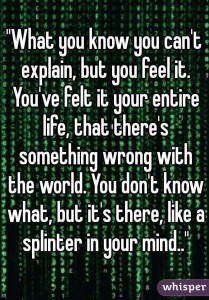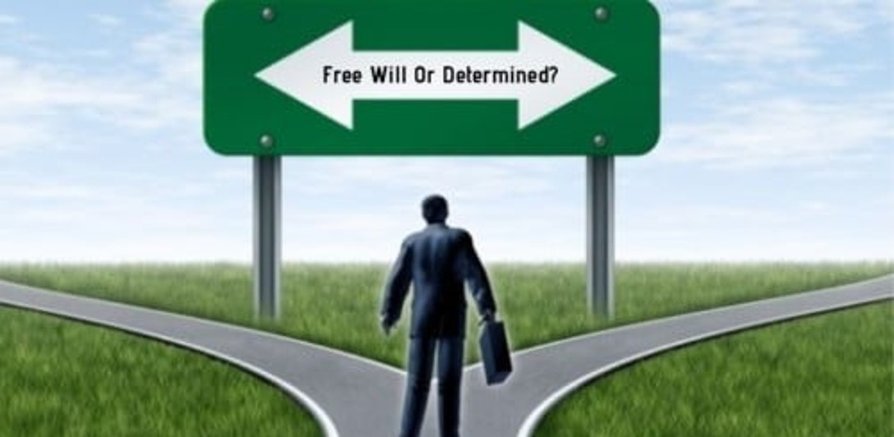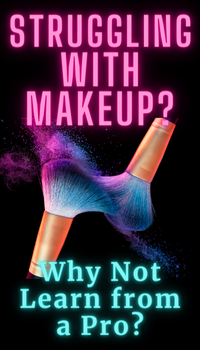Is Transgender Behavior a Choice?
A common criticism of being transgender is that it is entirely a “lifestyle choice.” The implication is that transgender behavior has no biological or cultural basis and that since we have “free will” we could choose otherwise. Of course, the values of anti- transgender people see the choice for transgender behavior as unnatural, a sin, or culturally/socially unacceptable behavior that somehow injures other people. I won’t examine the values of such people in this blog. Instead, I will concentrate on the “free will” issue. Philosophers have argued ad nauseam over this issue but while they were doing that, psychologists and neuroscientists soldiered on to attempt to develop the facts of the matter in the nervous system.
 The philosophical debate centers on whether behavior is “deterministic”, that is, whether it occurs because of a chain of causal relations set up at the beginning of the universe. Such causal relations include physics, chemistry and all interactions with other people whose behavior is, in turn, predetermined by the same set of universal causes. It thus includes the behavior of the individual as well as the effects of culture and society on them. This position has been used to excuse behavior on the basis that a person could not have done otherwise. Determinism is the view that our behavior is determined completely by previously existing causes which come to fruition within individuals based on their biology and experience. Transgender behavior cannot be wholly deterministic because transgender people often suppress transgender behavior to deal with obligations of work, family and fear of rejection.
The philosophical debate centers on whether behavior is “deterministic”, that is, whether it occurs because of a chain of causal relations set up at the beginning of the universe. Such causal relations include physics, chemistry and all interactions with other people whose behavior is, in turn, predetermined by the same set of universal causes. It thus includes the behavior of the individual as well as the effects of culture and society on them. This position has been used to excuse behavior on the basis that a person could not have done otherwise. Determinism is the view that our behavior is determined completely by previously existing causes which come to fruition within individuals based on their biology and experience. Transgender behavior cannot be wholly deterministic because transgender people often suppress transgender behavior to deal with obligations of work, family and fear of rejection.
Throughout most of the philosophical debate, the position of “free will” was the opposing position to determinism. That is, the idea that humans could choose their behavior unimpeded by outside forces including biology and experience. Free will is compatible with our introspection, that is conscious awareness of our thoughts. Simply put, most people believe that they are free to think and behave as they wish without being determined by previous causes and events. This position was consistent with certain cultural and religious views that people should be responsible for their own behavior and thus should be called to account by ethereal beings or society. A determinist argument against free will is that there is nothing outside of the body with its biology and experiences but, as we will describe below, conscious thought leads us to conclusions external to the body because it allows us to project the future.
There is actually a third position on this issue—that of “compatibilism” which many philosophers disdain. They characterize it variously as word trickery or word juggling. The idea that behavior is due to a cascade of factors starting with genetics which developed in the latter half of the 20th Century now allow us to reframe the debate. Compatibilism means that free will becomes just another factor in choice along with those factors previously considered to be deterministic such as genetics, environment and learning. Free will is based on conscious thought and also gets a vote on behavior.
What does physiological psychology science tell us about choice? After all, psychological science is supposed to be the “handmaiden of philosophy”. Cells in the brain, called neurons transmit information to other neurons by “firing”. Firing means that they send a chemical message down their length to other neurons in order to communicate. If you give an animal a task which requires throwing a switch in the right direction (right or left) and record the activity of neurons in the premotor cerebral cortex, one finds that some cells respond if the correct answer is to move left, some cells fire if the correct answer is to move right. The movement of the switch in one direction or another is preceded by a flurry of activity in the cortex. Their appears to be a voting scheme whereby the decision is determined by the number and speed of the firing for each type of left or right neuron (Georgopoulos et al. 1986). It is as if the left or right decision is determined by the number and insistence (frequency) of firing. This is called a “population or coding scheme”. In this case the direction is left or right taking into consideration of the firing rates. Concerned systems of the brain can have a vote by contributing to the direction and amplitude (frequency) of the firing. There are other examples of this population coding voting scheme elsewhere in the brain, in particular, sensory systems in which the multiple parts of the sensory system decide on what they are seeing or experiencing. So, population coding is well established as a type of mechanism in the brain.
It is easy to see from animal experimentation that population coding in the decision processes of human brains might include inputs from conscious mechanisms, thus demonstrating a scheme that support compatibilism.
So, if free will involves consciousness, what is consciousness?
Philosophers have debated (and still do) the nature of consciousness. Some say that it is connected to an ethereal spirit, some say it is a brain mechanism, while others say it is an illusion that the brain perpetrates on us. For my money, I go with the some of the ideas of Julian Jaynes and others that consciousness requires verbal and visual metaphor. (I was a student of Julian.) It should be clear that we are talking about consciousness in the awake human. And we are not talking about the capability to store up experiences, nor learning, nor concept formation, nor making judgements, nor intuitive reasoning. Non-human animals can do all those things. We know that from extensive experimentation with non-human animals. Human consciousness makes use of language which gives us the ability to conceive of verbal as well as visual metaphors, engage in verbal reasoning and, if trained, apply logic and rationality.
 Human consciousness allows us to engage in thinking which is outside of ourselves. Metaphors, verbal reasoning, rationality and logic can lead to conclusions about the future that our subconscious processes cannot achieve. It thus refutes the assumption of determinism that decisions are made based solely on causes due to biology and experience. Biology and experience are the past. If consciousness foresees danger in transgender behavior, it will be insistent to avoid it (and fire frequently). But it must overcome subconscious mechanisms, in particular, genetic gender predisposition. If consciousness foresees a desirable outcome, it will vote in favor of the behavior. You have free will to the extent that consciousness can be the “swing vote” to overcome the votes of the unconscious.
Human consciousness allows us to engage in thinking which is outside of ourselves. Metaphors, verbal reasoning, rationality and logic can lead to conclusions about the future that our subconscious processes cannot achieve. It thus refutes the assumption of determinism that decisions are made based solely on causes due to biology and experience. Biology and experience are the past. If consciousness foresees danger in transgender behavior, it will be insistent to avoid it (and fire frequently). But it must overcome subconscious mechanisms, in particular, genetic gender predisposition. If consciousness foresees a desirable outcome, it will vote in favor of the behavior. You have free will to the extent that consciousness can be the “swing vote” to overcome the votes of the unconscious.
This refutes the deterministic idea that you cannot be responsible for your behavior because your consciousness has a vote but you may have to overcome some unwanted unconscious tendencies. There are cases in which the commission of violent crimes were associated with brain tumors and malfunctions which overwhelmed the perpetrators through their subconscious. Such people may not have been totally responsible for their actions and the courts have taken notice of this.
Bottom line, if your subconscious brain votes for transgender behavior and your conscious does not oppose it strenuously, you will perform the behavior. As The Matrix hints, the subconscious urge to be transgender is “like a splinter in your mind—driving you mad.” It takes overwhelming consciousness to stop it but it keeps coming back again and again. The choice is a persistent, insistent and consistent recurring one.
So transgender behavior is a choice but there are factors represented in the subconscious that make it difficult to suppress through conscious thought.
Like to make a comment? Login here and use the comment area below.
Category: Transgender Body & Soul













